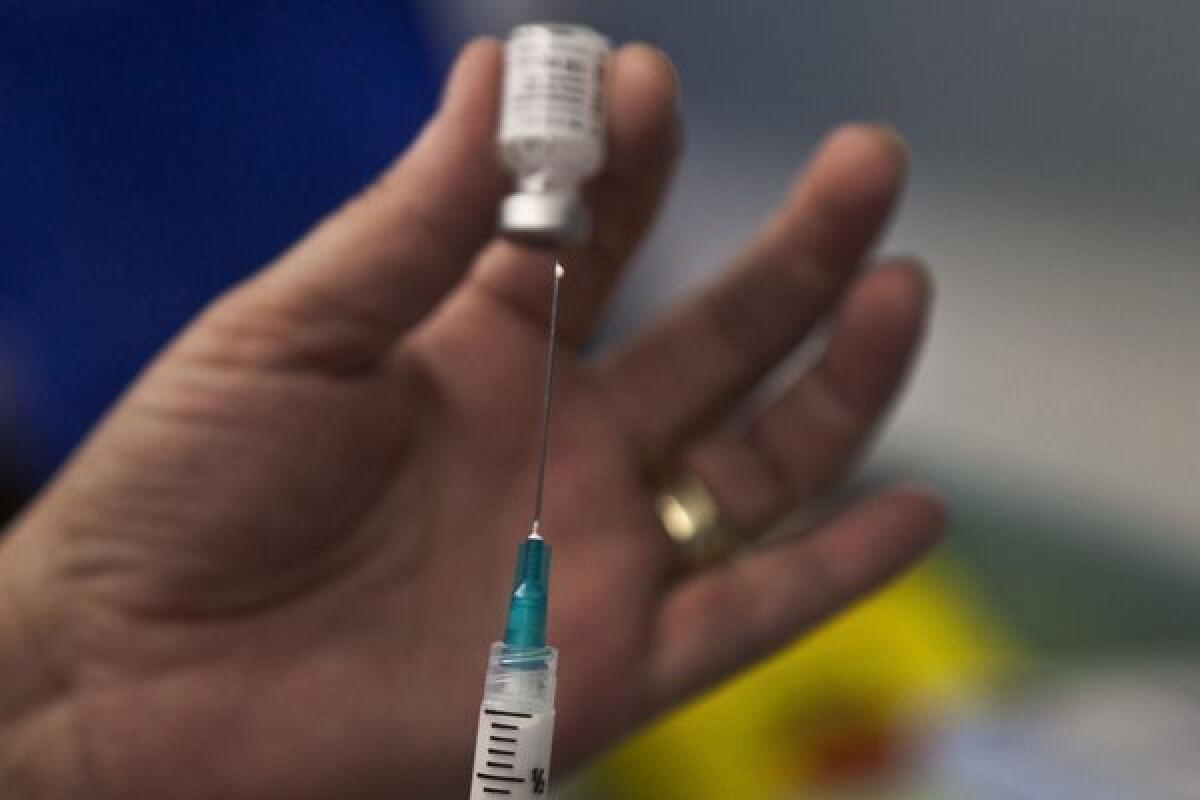Schools can administer insulin without licensed nurses, court says

- Share via
SAN FRANCISCO — California schools may give students insulin injections and other medications without having to call in licensed nurses, the state’s highest court ruled Monday.
“California law expressly permits trained, unlicensed school personnel to administer prescription medications such as insulin in accordance with the written statements of a student’s treating physician and parents,” Justice Kathryn Mickle Werdegar wrote for the California Supreme Court.
The unanimous decision was a defeat for the powerful California Nurses Assn., which had argued that only licensed healthcare workers could administer medicine under a state law that bars the unauthorized practice of nursing.
The American Nurses Assn. called Monday’s ruling “a disturbing precedent for California and the nation.”
“This decision lowers [the] level of care for children who are entitled to receive healthcare services at school and puts them at risk for medication errors that could have severe health consequences,” the association said.
But the Disability Rights Education and Defense Fund, which represented the American Diabetes Assn. in the case, said Monday’s decision would protect not only students but also adults with chronic medical conditions or disabilities.
The ability “to access services such as administering medication through attendants or other caregivers is integral to living independently in the community or receiving affordable residential care elsewhere,” the group said. “The question of who can provide what type of service is crucial to the people who need those services.”
The ruling overturned an appellate court decision written by Chief Justice Tani G. Cantil-Sakauye before she was elevated to the higher court. Because of her prior involvement, Cantil-Sakauye did not participate in Monday’s ruling.
About 14,000 school-age children in California have diabetes and typically need insulin injections both at regularly scheduled times and when blood glucose levels fluctuate unpredictably, the court said.
But California schools have only one nurse for every 2,200 students. Only 5% of schools have full-time nurses, 69% have part-time nurses and 26% have no nurse at all, the court said. Some schools have permitted non-licensed employees to administer insulin, and others have not.
“As a result, diabetic students have encountered difficulty in receiving insulin during the school day,” the court said.
Parents of four diabetic students filed a federal class-action lawsuit against the state in 2005, charging that schools were violating the law by refusing to provide insulin shots to students and requiring parents to leave their jobs to give their children injections.
In settling the lawsuit, the state agreed that unlicensed but trained school employees could provide the injections. The nurses’ association sued, winning in the lower courts, and the American Diabetes Assn. appealed.
Dennis Peter Maio, who argued the case for the diabetes group, said the ruling “ends the discrimination in our schools against children with diabetes, once and for all.”
Groups that supported the diabetes association before the court included the Child Care Law Center, the American Academy of Pediatrics Section on Endocrinology, the American Assn. of Diabetes Educators, the California district of the American Academy of Pediatrics, the Endocrine Society and the Pediatric Endocrine Society.
Nursing groups from across the country and California teachers unions sided with the nurses.
Laura Mecoy, mother of two teenagers with diabetes and a Los Angeles board member of a diabetes foundation, said the ruling “delivered a wonderful back-to-school present to our children.”
“As a working parent, I either left my job to help my child or employed a nanny who could provide that service when my child was too young to administer his own doses,” Mecoy said. “Once my son was able to administer his own injections, he was permitted to do so. So the school allowed an 8-year-old to do what it wouldn’t allow an adult health aide to do.”
More to Read
Sign up for Essential California
The most important California stories and recommendations in your inbox every morning.
You may occasionally receive promotional content from the Los Angeles Times.











